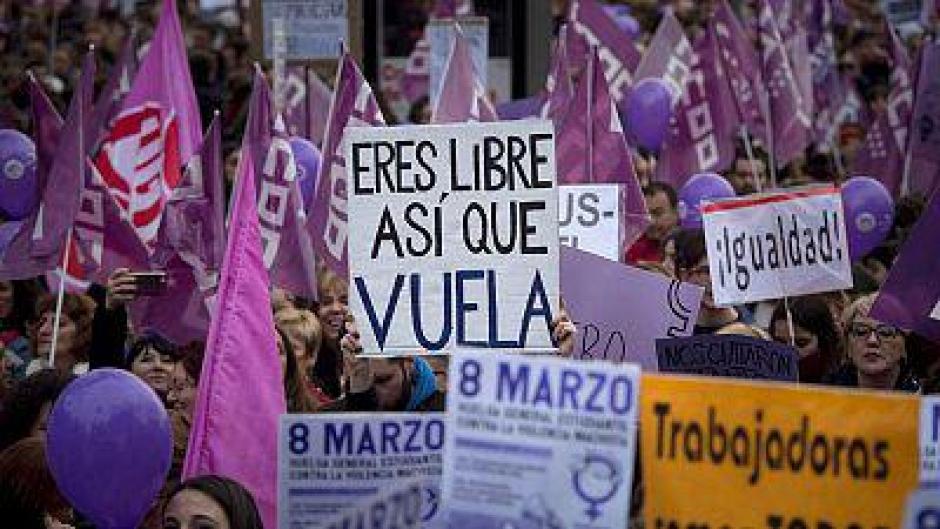
It is time to be brave in the face of patriarchy.
Throughout the last century, every March 8 is commemorated and remembered the struggle of women for the recognition of their rights in all areas of their lives. It was in 1975 when the United Nations General Assembly institutionalized International Women's Day.
This commemoration has its roots in the women's labor movement of the mid-19th century, when the world context was industrialization, a period characterized by the extreme exploitation of workers, due to the lack of legislation to protect them. In addition, women did not have the right to vote or to manage their finances and had a shorter life expectancy than men due to childbirth and mistreatment.
It was in 1848 when the "1st National Convention for Women's Rights" was convened in the United States. From that space the slogan was raised that both men and women are equal and demanded civil, social and political rights for all. This was one of the first steps for the demand for the right to vote to grow in all corners of the world, allowing New Zealand to become the first country to recognize the right of women to vote in 1893.
Likewise, in 1908, the prelude to International Women's Day took place in a march of more than 15,000 women in New York, who demanded shorter working hours, better wages and the right to vote.
Then the German Clara Zetkin promoted the commemoration of International Women's Day in 1910 at the "International Conference of Working Women", held in Copenhagen, Denmark, which brought together women from 17 countries. This caused hundreds of women to demonstrate in their nations, generating that a year later this date was commemorated for the first time in Germany, Austria, Denmark and Switzerland.
In addition, the 1911 fire at the Triangle Shirtwaist factory in New York set a precedent for the movement, since 123 women died as a result of being locked in so that they could not escape.
Subsequently, on March 8, 1913, women in Russia gathered to commemorate International Women's Day for the first time, when they demonstrated against war. As a result of these protests, in the following years European women gathered on this date to demonstrate against war. Likewise, in 1917 in the Russian nation, women again took to the streets as a reaction to the millions of Russian soldiers killed during the First World War. After several days of demonstrations, they ended up forcing the departure of Tsar Nicholas II, who had criminalized the women's movement. Subsequently, the Provisional Government recognized women's right to vote.
As has been shown, the organization of women is extremely valuable for historical processes, not only in terms of the particular rights they demand, but also in their impact on national and world politics.
Throughout the last century, we can see that there have been significant advances for the feminist movement, obtaining the right to vote, the recognition of labor equality and in some countries progress has been made in sexual and reproductive rights, as well as greater guarantees to live free from violence. However, there is still a long way to go and the situation brought about by COVID-19 has worsened the condition in which thousands of women find themselves, both because their economic situation has become more precarious and because their lives are in danger.
This year, the United Nations announced that the theme for International Women's Day 2021 will be "Women Leaders: For an Equal Future in the World of COVID-19", recognizing firstly, women who are on the frontline of the health crisis, such as health workers, caregivers, innovators and community organizers. Secondly, national leaders, who have been exemplary in the fight against the pandemic, are recognized for their swift, decisive and effective responses to the crisis. Many are heads of state in Denmark, Ethiopia, Finland, Germany, Iceland, New Zealand and Slovakia.
Despite the fact that women constitute the majority of frontline health personnel, there is still a disproportionate lack of representation of women in national and global policy-making bodies related to COVID-19 and in all other decision-making spaces. Therefore, in order to safeguard and demand women's rights, it is necessary to integrate the perspectives of women and girls in the formulation and implementation of public policies, in all areas and stages of the response to the crisis and in the recovery from the ravages of the pandemic.
The eradication of male chauvinism is a responsibility of all of us in society, that is why as International Humanist Party we are committed to continue persistently denouncing and fighting against patriarchal violence.
It is time to be brave in the face of patriarchy.
Feminism Secretariat
International Coordination Team
Federation of Humanist Parties
March 8, 2021
